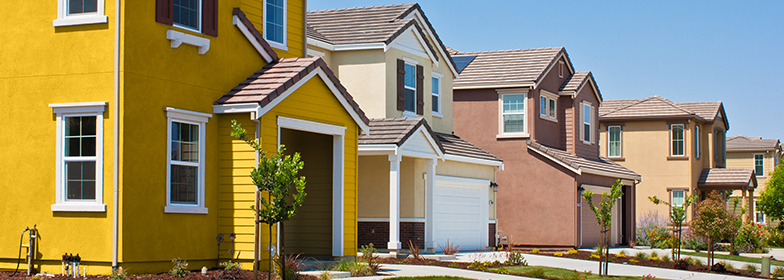
Top 5 essential questions to ask about HOA fees before buying a home
In the United States, over half of homeowners live in communities with a homeowner association (HOA). So, if you’re looking to buy a new home, there’s a good chance it will be in a community association-governed neighborhood.
When purchasing a home with an HOA, it’s important to understand that membership is mandatory. If you own a home in that community, you’re responsible for paying monthly or annual HOA fees. HOA fees can also impact your home loan financing because they’re counted in your debt-to-income ratio.
The benefit of paying these fees is that you can enjoy the perks of community services and amenities without having to shoulder the cost of maintaining them on your own. In addition, belonging to an association may help increase your home’s value.
While you’re likely familiar with ongoing homeownership costs such as a mortgage, taxes and insurance, you may also need to budget for HOA fees. Before making an offer on a home, find out the answers to five frequently asked questions about HOA fees.
1. What are HOA fees, and what do they cover?
HOA fees are what you pay to your homeowner association. They’re usually collected monthly and may go toward the following:
- Common areas and building maintenance: Most fees pay for the upkeep of your community. In addition to lawn care and landscaping, HOA fees often cover the cost of maintaining indoor common areas, fitness gyms, playgrounds, tennis courts and swimming pools.
- Insurance: If liability insurance covers communal spaces or flood insurance is required, HOA fees may go toward these policies.
- Reserve fund: Part of your monthly HOA fee is usually set aside for renovations, such as replacing a roof or emergency repairs, like fixing burst pipes. If your HOA doesn’t have enough in its reserve fund to cover the cost of unexpected expenses, the HOA board may also levy a one-time HOA assessment.
- Security: Fees may go toward extra security measures like security guards, surveillance cameras or auto-locked entrances.
- Utilities: Common utilities that HOA fees may cover are trash removal, recycling, gas, water and sewer.
2. What’s not covered by HOA fees?
Understanding what’s not covered by HOA fees is helpful when determining your homeownership budget. For example, home insurance won’t be included, and neither will property taxes. But what about your utilities? Sometimes HOA fees will pay for basic utilities like water, sewer and garbage disposal. If your goal is to purchase a home you can afford to buy and keep, consider the impact of all expenses not covered by HOA fees.
3. Are HOA fees tax deductible?
According to the IRS, if you purchase property as your primary residence, you cannot deduct homeowner association fees, condominium association fees or common charges. However, if your property is used for rental purposes, you may be able to deduct expenses related to management and maintenance.
4. What are typical HOA fees by type of community?
There is no typical HOA fee—they can range from a few hundred to a few thousand dollars. The location, type of home and amenities all affect how much you’ll pay. iPropertyManagement.com found that a single-family home’s average monthly HOA membership fee is $250. Condominiums and common-interest communities pay an average of $170. Metro New York has the highest HOA fees, and Nashville, Tenn. has the lowest.
5. What if I can’t pay my HOA fees?
If you can no longer afford your HOA fees, meet with your board before missing a payment. Falling too far behind can lead to steep penalties, including late fees, a lien on your property or even foreclosure.
Fee-related questions to ask before buying in an HOA community
According to a recent Homeowner Satisfaction Survey, most residents rate their overall community association experience as positive. However, it’s important to note that as a member of an HOA, you’re subject to the community’s restrictive covenants.
Also known as CC&Rs, restrictive covenants are legal agreements you make with an HOA that list what you can and cannot do with your home and property. So, buying a home with an HOA may not be ideal if you’re looking for flexibility and control over your property. Most HOAs have strict building codes and restrictions on lawn maintenance, paint color, street parking, noise and even holiday decorations.
To determine if a community HOA is right for you, start by asking yourself if the community provides the amenities you want and if it fits your lifestyle. Then ask the homeowners association board these fee-related questions to ensure you’re prepared financially.
- How much are the monthly HOA fees, and what do they cover?
- How are the HOA fee increases set?
- How often do increases occur, and how much have they been raised each year?
- How large is the HOA’s reserve fund?
- When were homeowners last assessed for repairs, and what repairs were done?
- Are there any current litigations pending involving the HOA?
Do you have questions about the mortgage process for a home that’s part of an HOA? Connect with a loan officer in your neighborhood.
The above information is for educational purposes only. All information, loan programs and interest rates are subject to change without notice. All loans subject to underwriter approval. Terms and conditions apply. Always consult an accountant or tax advisor for full eligibility requirements on tax deduction.
